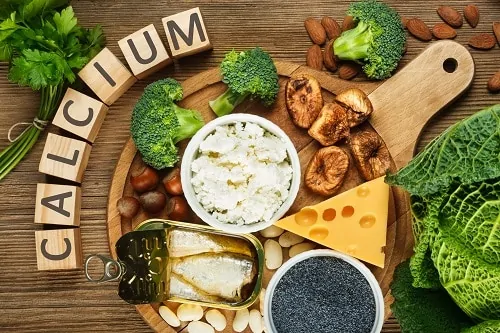Blog
Is Your Family Getting Enough Calcium?

Calcium is most commonly noted as being a crucial mineral for strong bone development. However, at our dental office in Douglasville we also know that calcium is an essential part of building strong and healthy teeth. But just how much calcium does your family need?
The Importance of Calcium
Before we dive into how much calcium each member of your family needs, let’s take a quick look at why a steady intake of it is important. Our bodies need calcium in order to function properly, and our systems will pull what they need out of what we have in our bones. In fact, the calcium found in bones and teeth is repeatedly removed, and it needs to be replaced. This is where eating a diet high in calcium helps replenish what’s lost. This is particularly important in young children when bones are developing and growing, and for older adults.
Calcium Doesn’t Stand Alone
We wouldn’t be giving you great advice if we didn’t tell you that a solid calcium intake is only half the battle. In order for the calcium to be absorbed and aid in tooth and bone development and strength, it needs vitamin D. Vitamin D is an essential vitamin, meaning your body relies on it to function. Make sure your family isn’t only eating a diet rich in calcium, but also vitamin D. Some foods that can help increase levels of vitamin D include:
- Dairy products
- Egg Yolks
- Fish such as salmon and herring
How Much Calcium is Enough?
The appropriate amount of calcium varies depending on age and gender. Here are the recommended daily doses according to the Food and Nutrition Board (FNB).
- 0-6 months = 200 mg
- 7-12 months = 260 mg
- 1-3 years = 700 mg
- 4-8 years = 1,000 mg
- 9-18 years = 1,300 mg
- 19-50 years = 1,000 mg
- 51-70 years = 1,000 mg for males, 1,200 mg for females
- 71+ years = 1,200 mg
Foods High in Calcium
When looking for calcium-rich foods, your Douglasville dentist wants you to consider going outside of the dairy aisle. There are plenty of non-dairy foods that pack a mean calcium punch including:
- Sardines
- Soymilk
- Orange juice
- Calcium-fortified cereal
Remember, besides eating a diet high in calcium, it’s also important to eat a variety of food groups at every meal.
At our Douglasville dental office, we’re in the business of taking care of your family’s smiles. One way to ensure a lifetime of strong, beautiful teeth is to get the recommended daily amount of vitamin D and calcium. And of course, we always recommend proper brushing and regular dental visits.
Good for the Body, Good for the Mouth

What we put into our bodies can certainly affect how we feel and how healthy we are. But eating the right foods to fuel your body goes beyond enhancing overall health. During this National Nutrition Month, your Douglasville dentist wants to let all of our patients know how proper nutrition can also benefit your oral health.
What Exactly is Proper Nutrition?
The basics of eating right include reducing your fat and sugar intake while upping the amount of nutrient rich foods. But how much of what things should you be eating? That’s where things aren’t so simple. Ever since the original Food Pyramid Guide was published by the United States Department of Agriculture (USDA) in 1992, nutritional recommendations have shifted two more times. The current standards are reflected in MyPlate and vary depending on age, gender, height, weight, and daily activity level. However, most of the common rules of thumb remain the same including focusing on eating plenty of:
- Fruits
- Vegetables
- Whole Grains
- Lean Proteins
- Dairy
How Does Good Nutrition Relate to Oral Health?
The body’s response to eating “bad” foods and drinks increases the likelihood of someone experiencing oral health issues and diseases. Let’s look at foods that are high in sugar, for example. Sweets and beverages like soda and even juices packed with sugar attack tooth enamel. If they’re not rinsed away or are left exposed to the teeth for long periods of time, they will work away at and erode the protective tooth layer. Without this barrier, teeth are more susceptible to cavities and sensitivity. Although almost every food contains some amount of sugar, even the good foods we’re supposed to eat, try your best to stay away from items that have added sugars and remember to read nutritional labels.
Beware of the Hidden Sugars
Sugar content in the sweeter foods that you choose for you and your family isn’t the only thing your dentist in Douglasville is wary of. There are hidden sugars everywhere, even in places that don’t taste sweet. Foods that contain a lot of carbohydrates can actually raise blood glucose levels and effect the body the very same way actual sugar does. Since these carbs end up breaking down into simple sugars, they put teeth at the same risk for decay as eating a sweet treat.
Eat Well, Protect Your Smile
At our dental office in Douglasville, we strive to keep our patients healthy by being a key member of their health care team. Encouraging a healthy, well-balanced diet is a great way to ensure not only a healthy body, but also a healthy mouth. If you’re looking to become a healthier version of yourself and get your smile in its best shape yet, we welcome you to schedule an appointment with us today.
